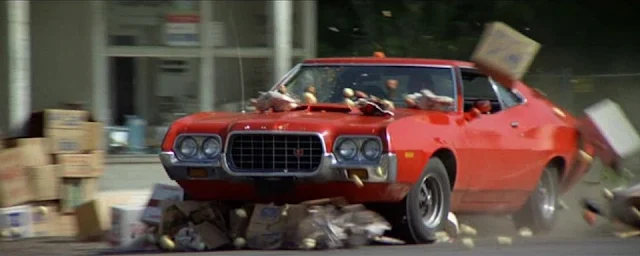 |
| Bill Sage and Martin Donovan in Flirt |
Cast: Bill Sage, Dwight Ewell, Miho Nikaido, Robert John Burke, Martin Donovan, Erica Gimpel, Michael Imperioli, Holt MckCallany, Harold Perrineau, Parker Posey, Karen Sillas, Sebastian Koch, Geno Lechner, Elina Löwensohn, Hal Hartley. Screenplay: Hal Hartley. Cinematography: Michael Spiller. Production design: Steve Rosenzweig. Film editing: Steve Hamilton. Music: Hal Hartley, Jeffrey Taylor.
Every experiment is valuable, even (maybe especially) the failed ones. Thomas Edison went through any number of potential filaments for his electric light bulb before finding the one that would provide sustained illumination, but he learned something from each attempt to work with cardboard or hemp or bamboo. So to dismiss Hal Hartley's Flirt as a failed experiment, as some have done, is to miss the point. Hartley is trying to show the primacy of context, to demonstrate that where and by whom something is said and done matters even in the most mundane of instances: a relationship on the verge of ending, for example. Flirt has a precursor in a scene in Hartley's 1992 film Surviving Desire, in which a young writer reads to her professor a passage from a story she's writing. The first time she reads it, the speaker in her story is a man talking about his relationship with a woman. The professor then asks her to read it again, but to change the speaker to a woman talking about her relationship with a man. The change is revelatory. In Flirt, Hartley tries a similar experiment but on a larger scale, not only sexual but cultural. He does the same scene, a couple at a crucial moment in their relationship, with the same dialogue, and with the same follow-up scenes -- an encounter at a public phone, the introduction and firing of a gun, a session in an emergency room, and an attempt by one partner to contact the other -- but he does it first with a straight white man in New York, then with a gay Black man in Berlin, and finally with a Japanese woman in Tokyo as the central character. The results are sometimes predictable: A gun brandished in New York is bound to elicit a different reaction from one brandished in Tokyo. In New York, no one seems to take much notice, so there's a scene in which the protagonist and the gun owner sit at a table in a bar and talk while one takes the bullets out of the gun and the other puts them back in again. But passersby in Tokyo are terrified at the site of the weapon and the police are called, precipitating a kind of chase. In the relationship of protagonist and lover, the changes in sexual identity have more inward results, exposing different vulnerabilities in each partner. Flirt probably has to be called a failed experiment because nothing like sustained illumination is achieved. But experiments are also often contaminated by the observer, so we have to take into account that the observer is Hartley, a filmmaker who has a distinct and familiar way of looking at things.























